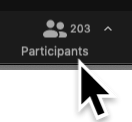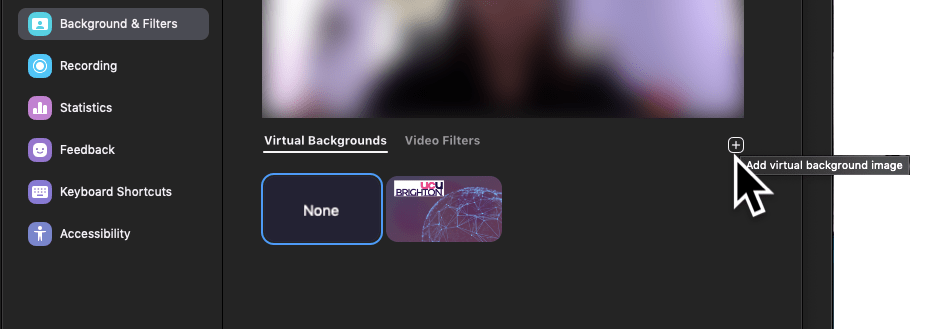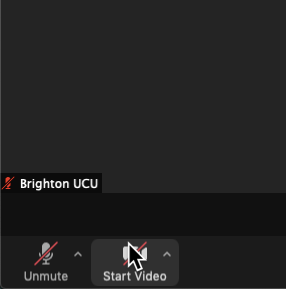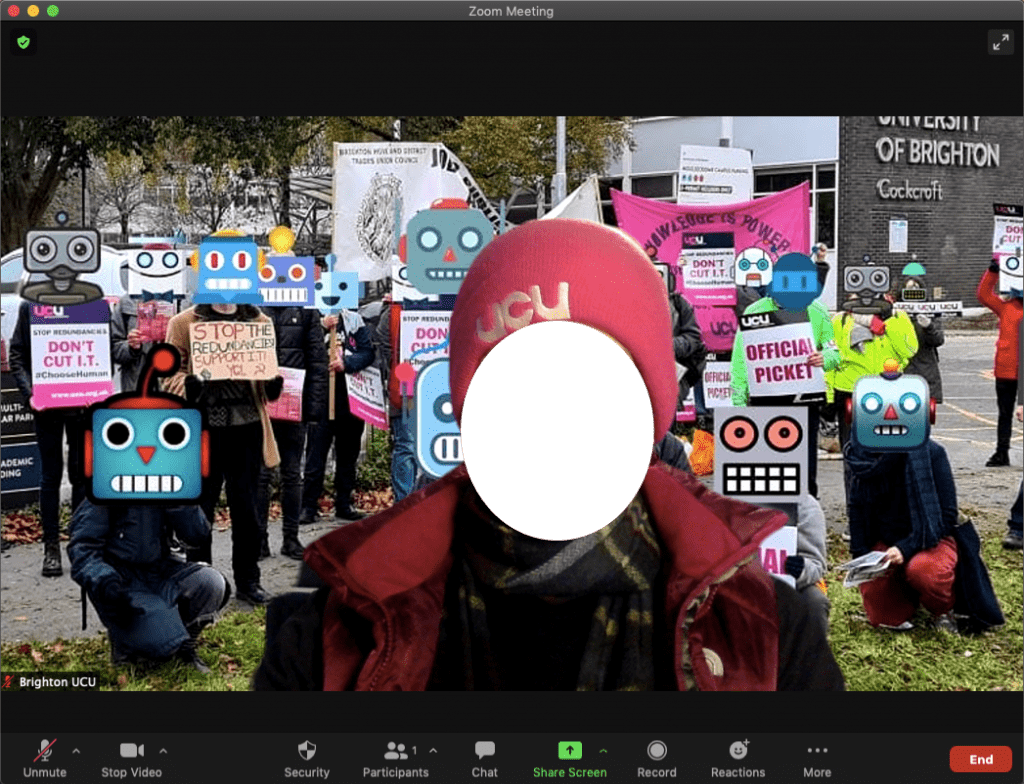LGBTQ+ History Month Event – Wednesday 17th Feb 3.30pm-5.00pm

‘Progress’ Pride Flag by Daniel Quasar
This event is organised by Brighton UCU
Being Queer in the ‘New Normal’ – What is going on for you?
Discussing our current situation through a Queer lens for LGBTQ+ History Month
Wednesday 17th February, 3.30pm – 5.00pm
On Zoom – register using this link
This event is free and open to LGBTQIA+ staff, allies, and folks who are interested. Kids are also welcome.
Includings guests:
- Nicola Field (writer, artist, activist, and UCU member), one of the original members of Lesbians and Gays Support the Miners.
- Representative from LGS Migrants
Accessibility and Inclusion
- Due to a technical issue, we regretfully cannot provide a live transcript or closed captions for this event.
- Dial-in options using UK-based numbers will be available (if you need to dial in from elsewhere contact: brightonucu(at)gmail.com)
- Facilitators will challenge racism, sexism, homophobia, transphobia and any other oppressive behaviour and language. Do also check out our tips below on using Zoom inclusively
About the event
This open conversation event will explore the impact of the covid-19 pandemic on the LGBTQ+ community. We will talk about its effect on queer lives, including community and online spaces, queer activism, community support and publications, and queer experiences of the lines drawn around ‘the household’. We will look at examples of queer solidarity, collective care and community action from the past, as well as discussing what queer communities have been doing to support each other during the pandemic.
This is an open conversation, with some questions to start our discussion. The questions that we are using are listed below.
Questions
-
How have current events affected our work, relationships, and networks?
How have current events had an impact on:
- Community spaces?
- Experiences in online spaces?
- Queer publications and media representations?
- Queer activism and politics?
- ‘The household’?
-
What solutions have we found to these issues?
- What ways have we found to connect with our queer communities and find new communities?
- How have we defined our queerness in online spaces?
- What can we do to support others who do not have access to technology?
-
What lessons can we take from LGBTQ+ history?
- What can we learn from the movements of the past, e.g. Lesbians and Gays support the Miners; HIV/AIDs activism
- How can we come together and counteract prejudice within our own communities?
- What should we do next?
Discussion and resources shared during the event
Key points for question 1
- Discussion of closure and effects on community spaces and issues with funding/income streams.
- LGBTQ+ venues closed, having to find ways of interacting and meeting people online. Noted the absence of crucial connective events such as Traumfrau and the closure of the Malborough pub as a venue (although thankfully Malborough Productions live on).
- Some folkx had hoped to be more involved in online activism, some folkx found the volume of webinars and online meetings a bit overwhelming, some felt technology overload due to nature of day-jobs.
- Noted difficulties with online organising and connecting to others – not the same or as cohesive as in-person organising.
- Effects on queer publications in terms of advertising revenue (from Pride, hospitality, tourism ads). Some magazines forced to shutter of cancel issues. Noted the effect on bisexuals in ciss-het relationships and those in rural areas who can be more reliant on media-based connections to community and identity.
- The toxicity of some online spaces for trans people especially was mentioned as an issue that had grown in prominence during the pandemic due to the move to online spaces.
- Discussed issues of the ‘household’ and the government definition of the ‘household’ based on heteronormative assumptions. This had meant that chosen families could not interact until the ‘bubble’ rules were introduced.
- This event at Goldsmiths on Friday 26th February at 5pm ‘Demystifying bisexuality: Exploring new research’. This online event is free to attend and you can access the Eventbrite registration page here.
- Representatives from LGS Migrants attended and explained the actions and protests that they have been able to arrange during the pandemic. This has seen amazing engagement especially for an online event where over 700 people attended. For more information and to find out how to support LGS Migrants visit their Facebook page. We applaud LGS Migrants for all the fantastic work that they are doing and they brought so much to this event and the discussion.
Key points for question 2
- Noted that for those who feel disconnected for queer events and communities, podcasts had provided much needed connection. A few recommendations (albeit very niche): Gaylords of Darkness, The Final Girls (UK-based feminist collective), Girls, Guts, and Giallo hosted by Annie Rose Malamet. Also connection to queer focused and queer conscious booksellers (who will ship or click-and-collect) such as Brighton-based The Feminist Bookshop and Manchester-based QueerLit.
- Back to points around activism, some noted that Covid support and resistance action over safety had been ways that they had been involved in work locally. Also protests to support adequate PPE provisions in the NHS and workplace closures. The Queer Care network was mentioned as an organisation doing community care work.
- The importance of BLM was noted. This is a movement that many had been involved in and felt passionate about.
- Noted that the move to online has allowed some neurodiverse folkx to engage and participate in ways that they had not been able to previously. So online action can be empowering.
- Issues around homelessness for queer people during lockdown. In some cases related to the need to return back to parental home locations where tolerance and understanding may be absent. Mention of connectivity issues for folkx with no fixed abode and the rise in youth homelessness.
- DIY Kodak Collective and Queer AF Brighton are doing some work to support queer people who are homeless. If you are interested in signing up to help these organisations or supporting them you can find out about DIY Kodak Collective at their Facebook page (contact Queer AF Brighton via email). We are most grateful for the representative from these groups who attended the discussion.
- A queer homeless project in London which also need support was mentioned, The Outside Project – their library needs support as well.
- Mention of work to bring together queer folkx in Zimbabwe and issues with colonial laws which discriminate against LGBTQ+ people.
- Fun and inclusive family and teen-friendly programmes were mentioned including She-Ra and Star Trek: Discovery which features a queer chosen family as main characters.
Key points for question 3
- Talked about archives and the need to preserve queer histories. How to preserve artifacts such as flyers, protest signs and literature. Mentioned the Coast is Queer literary festival as an inclusive online event/s.
- The Reframe Project at University of Sussex (open access, multimedia, digital publishing) was mentioned as a potential avenue for preservation.
- ‘Within the Four Walls’: Queer Lockdown Stories from New Writing South
- ‘Space / Walk’ | Hear Us Out Programme from New Writing South
- We learned about the history of protests and activism in Brighton fighting Section 28 in the late 1980s and throughout the 1990s (repealed in 2000 in Scotland and in 2003 in England and Wales). We considered how easy it could be for these types of issues to arise again and how charter schools, for example can opt out of the national curriculum.
- We heard about the difficulty of teaching during Section 28 and how that affected living authentically and also affected how LGBTQ+ young people could access support.
- We learned about Lesbians and Gays Support the Miners and parallels between the socio-economic climate in the 1980s and our current situation of extended austerity compounded by the Covid-19 pandemic. We learned that LGS Migrants were inspired by the work of LGS Miners and that was a more hopeful and heartening comparison!
- Documentaries which are available on Amazon Prime and Netflix were also mentioned. Such as Disclosure (2020). Also Steve MccQueen’s Small Axe and Russell T Davies It’s a Sin as important historical dramas about and including LGBTQ+ people.
- The podcasts, Bad Gays and The Log Books about the history of LGBT Switchboard were recommended.
- We discussed the need to support United National international day against Racism on March 18 and around UK /across Europe on March 20 there is a Stand Up To Racism day of action. For more details visit Stand up to Racism’s website.
- We discussed what we might do next: ideas put forward were more collaborative work and events between Brighton and Sussex; a discussion event where we each bring an artifact from our past and share our stories about these objects.
- At the very end some of took part of a photo to send solidarity to Boğaziçi University in Turkey. This was gratefully received.
Using Zoom inclusively
-
Set your pronouns in Zoom.
- It is useful to let everyone know how your gender pronouns. Even if you think it might be obvious due to your name, we would prefer not to assume when we invite you to speak or repond to what you say. If you do not specify then we will use your name or ‘they’ unless we have prior knowledge of your pronoun.
- Click on on the Participants Button along the bottom of the Zoom window.

- Click on the ‘More’ button on the right-hand side of your name. Then click on ‘Rename’.

- Write in your preferred pronouns in brackets and click on ‘Rename’ to confirm.

-
Set your picket background in Zoom.
NB. This is only available in newer versions of Zoom for desktop computers (PC or Mac).
- Backgrounds are helpful for your privacy and they can also add some personality to meeting. Please ensure that your chosen background is respectful and will not cause offense.
- Click on the arrow next to the video button along the bottom of the Zoom window. Click on the option to ‘Choose Virtual Background…’.

- In the options window, click on the + button on the right-hand side.

- Browse for the image on your computer, select it and press ‘open’ in the file browser. Once the image is shown in Zoom. Click on it to make sure that it is selected.

- Close the settings window.

- Click on the video button to ‘Start Video’.

- Yay – now you now have a background on the call!

Nothing from November 21, 2024 to December 21, 2024.


Leave a Reply